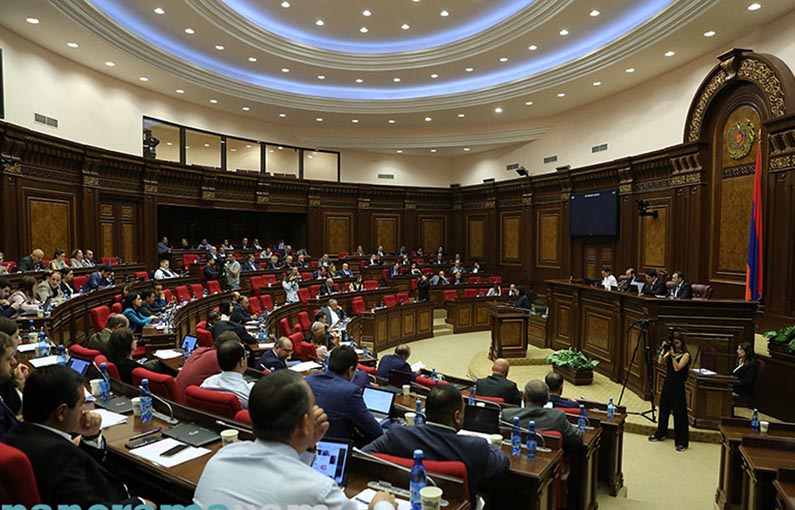Vahe H. Apelian
First let me note that I jot in my blog instead on my Facebook page because my blog offers a better archiving. It enables me to retrieve rather easily what would have been a posting on my FB page and over time, for all practical purposes, remained buried somewhere in my Facebook page.
Recently, I got engaged in a conversation over the legitimacy of the Pachinyan government, questioning the legitimacy of the “My Step” coalition he led. The argument was based on the claim that My Step coalition got 70% of the votes when only 48% of registered voters voted during the election. According to records presented in Wikipedia, 1,261,105 persons out of 2,683,140 registered voters voted. The exact percentage is 48.63%.
The argument presented is not legitimate. In a democratic process voting is a privilege and some do not exercise it for a variety of reasons and thus differ judgement to those who participate in the process. Cursory review of voters’ participation in some 250 years old Republic of the United States of America indicate voter participation has varied from 49% to as high as 80% but never to 99 and a fraction percent, much like the percentage of voters who voted to Saddam Hussein at one time.
Some of the registered voters in Armenia cannot vote because they are not in Armenia during the voting. We should bear in mind that only those registered voters who are in Armenia during the election can and may vote. We all know that many Armenian registered voters have left the country permanently or have left seasonally for work. Therefore, we cannot exactly know how many constitute the electoral base in Armenia at the time of the election. In all likelihood it is less than the registered voters. Therefore, we should bear in mind that the figure 48% voter participation is based on the total number of registered voters and not on the actual number of voters who could vote at the time.
The other issue is that such argument is self-defeating. While My Step coalition got 70% of the 48% of the registered voters, so did the others as well. That is to say, Prosperous Armenia got 8.26% of the 48% of the registered voters and Bright Armenia got 6.37% of the 48% of the registered voters, and so on. Implying that the relative preference of the voters is the same.

The other argument that was brought was the Pachinyan government’s hegemony over the legislative body. True, that My Step coalition is the Constitutional majority in the Armenian National Assembly. However, its relative dominance against the two oppositions parties that met the criteria of having achieved over 5% of the registered voters, is diluted. The two opposition parties that got enough votes to be eligible for National Assembly representation, together have approximately 15% of the votes, while My Stop coalition has 70% of the votes, that is to say almost 5 times the combined votes of the two opposition parties. But the government and the opposition together constitute around 85% of the voters and consequently Armenian National Assembly cannot claim to represent the people of Armenia, if it were to be based on the sum total only of those who were eligible to be in the National Assembly. Such representation would have disfranchised the 15% of the voters who are not qualified to have a representation in the National Assembly, because they could not meet the requirment.
The laws of Armenia wisely mandate that opposition should constitute 1/3 of the Armenian National Assembly. Consequently, the number of the deputies in Armenia, which varies, is presently 132 of which 88 are deputies representing My Step coalition, that is to say only 2/3 or 67% of the Armenian National Assembly, making it constitutional majority in the National Assembly while the ruling opposition in the National Assembly constitute 33 %, which is far more than 15% they received. The opposition in the National Assembly thus do not only represent their parties but also represent the other 15% of the voters who otherwise would have no representation in the National Assembly.
I do not believe that during the past three decades Armenia had a government facing such an opposition. The question arises of course, is the opposition doing its job? No, I do not believe the opposition is doing its job as expected. Case in point is the resignation of the of Prosperous Armenia and Bright Armenia deputies from the National Assembly. Instead of staying and arguing on the principles they allegedly stand for, they resorted not to participate in the democratic process. These deputies sort of took a passive aggressive, unprincipled, ill-fated stand. They are far cry from the one-time small party called YELK (The Way Out) Nikol Pachinyan led and passionately argued on the National Assembly podium against the conduct of the president’s party that ruled the National Assembly with an iron grip.
No law can possibly empower the opposition more, if they do not want to be engaged constructively and do what they are expected to do in a constructive manner. That is to say, oppose the government policies, not for opposition sake of course, but on principle.

